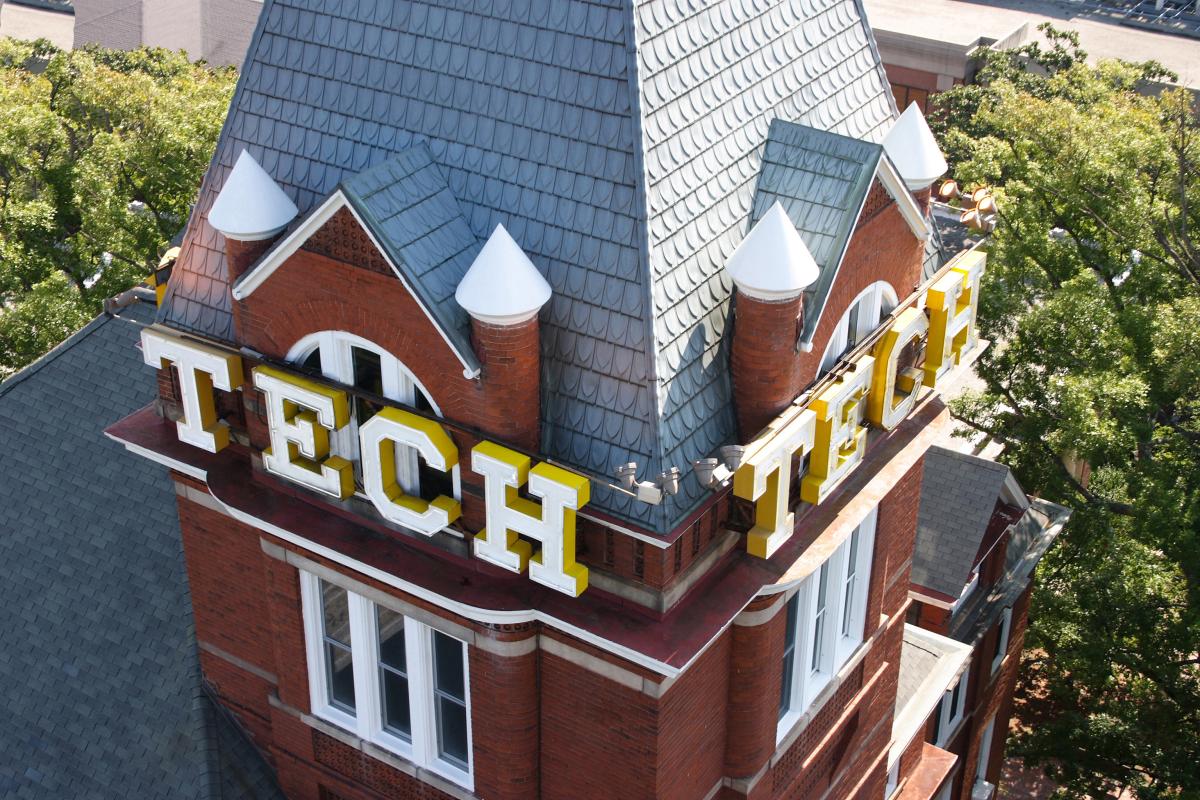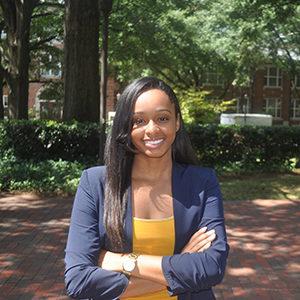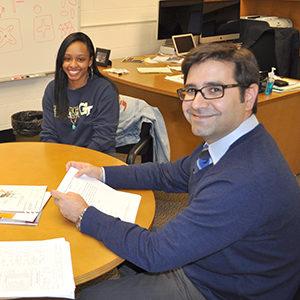Tiffany Davis is a shining example of a growing trend at GT-AE:undergraduates who are augmenting their internships,classroom and lab work with research, and potential employers are noticing.

For aerospace engineering undergraduate Tiffany Davis, the engineering bug bit early. And hard.
“When I was11 I asked for a circuit board for Christmas because I thought it was cool that this board could play such a huge role in how something works,” says the 20-year-old Washington, DC native.
“What can I say? I was just one of those engineering nerds. I still have that circuit board. It’s still really cool.”
More than cool, Davis's unbridaled enthusiasm and intense work ethic have lately been garnering the attention of academic and industry leaders.
The Boeing Company, for instance.
Last week, the aeronautics giant announced it had chosen Davis for its highly competitive Engineering Accelerated Hiring Initiative (EAHI), an elite program that elevates the employment and internship options for 350 of the nation’s best undergraduate engineers. In November, Davis and other EAHI recruits will fly to Seattle, where Boeing's top hiring managers will compete for their attention.
“We get to interview them. It’s beyond exciting,” Davis said. “I get to convey my interests to them and to see who might be the right fit for me. Right now, I’m thinking that I might look for something in propulsion, but that could change. I am still considering my options.”
While she is mulling those plans, Davis will be busy in the ASDL, doing research for a year-long NASA research initiative, ACRUM. For the rest of this academic year, Davis will be collecting ephemeris data for the project, which is mapping out plans to capture and redirect the orbit of an asteroid.
It was a little different last year, when, as a sophomore, Davis was selected to serve as a structural analysis intern for Boeing at its Huntsville, Alabama location.
“I was freaked out [happy] that I’d gotten the internship, and freaked out because I didn’t know what a structural analysis intern does,” she said.
“But then I thought about it, and I knew that I could read the book, seek the help, find out what they needed, and bring them my best.”
The “help” that Davis sought was not just anyone.
"I ran into Dr. [Julian] Rimoli’s office and I begged him to let me help with his research. I’d do anything to learn more about structures,” she said.
“In our statics class, he’d told us that his research was in advanced finite element analysis, which is a subset of structures, so, basically, I knew he could help me improve my base knowledge. I wanted to be ready to contribute when I showed up in Huntsville over the summer.”
Rimoli remembers Davis well.
“She was always asking the best questions in class, and delivering the best explanations for the problems we had in class. So when she requested extra time to do advanced reading and research, I agreed. And, there again, her intelligence was only rivaled by her tenacity.”
Every week that semester, until Davis left for Huntsville, Rimoli met with his charge to give her extra readings and assign increasingly more challenging structural mechanics problems. In the end, he said, she was tackling work that he would normally have reserved for a graduate student.
AE professor Julian Rimoli and then-sophomore Tiffany Davis during one of their many non-credit tutoring sessions last spring. The knowledge she gained from these sessions gave Davis the edge in her summer internship at Boeing.
Davis did not receive any academic credit for this challenging tutorial. Nor did she ask for it. The plan was to be well-prepared when she arrived at her Boeing internship.
“The first day I arrived at Huntsville, one of my technical leads gave me a problem involving bearing stress on a part, and he said if I could have it to him by the next day, it would be fine. I had it done in an hour.”
Mission accomplished.
Boeing lead recruiter Mark Lyden was not surprised to hear this. When he interviewed Davis for the EAHI position, she exhibited what he called “a brightness” that made her stand out among even the best.
“Tiffany Davis is the kind of student we come to Georgia Tech to find. And I’d like to see her working with my group when she comes to Boeing because I think she could teach others,” he said.
“She has the good grades, the leadership skills and the communications skills that we expect, but she also has that ‘X’ factor that makes her an outstanding person to work with. She’s smart but not prideful, curious but meticulous in her work.”

